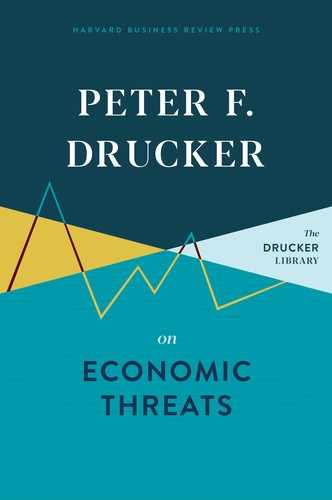PART V
![]()
The Changing Globe
During the last thirty years the international economy has become a transnational world economy. Even the mightiest national economy is now only one competitor in the world economy and dependent for its economic well-being on its success in the world economy. Paradoxically, the only major developed country in the Free World which understands this is the most nationalist and protectionist one: Japan. That Japan, since the early 1950s, has steered her economic course by the constellations of the world economy rather than by domestic economic considerations, as Keynesian (or Friedmanite) economics demands, has been a major factor in Japan’s exceptional economic performance.
As a result, the economic theories by which most developed nations guide their policies are rapidly becoming obsolete. “Demand-management” can only produce inflation when domestic, i.e., national fiscal and monetary policies, no longer truly control a national economy. Then, as the Japanese first saw twenty years ago, national policy must focus on investment. There can then be no national key currency anymore, and countries must move toward new forms of money that are transnational rather than extensions of national sovereignty. And the demographic changes under way which are forcing us to shift from traditional trade in goods to international integration by stages of production and production sharing will further put the world economy in the ascendant.
This is much too big a topic to be covered briefly. For more extensive treatment in some depth see my recent book, Managing in Turbulent Times. The articles selected for this volume do, however, strike major themes and introduce important new questions, ideas, and concepts.
